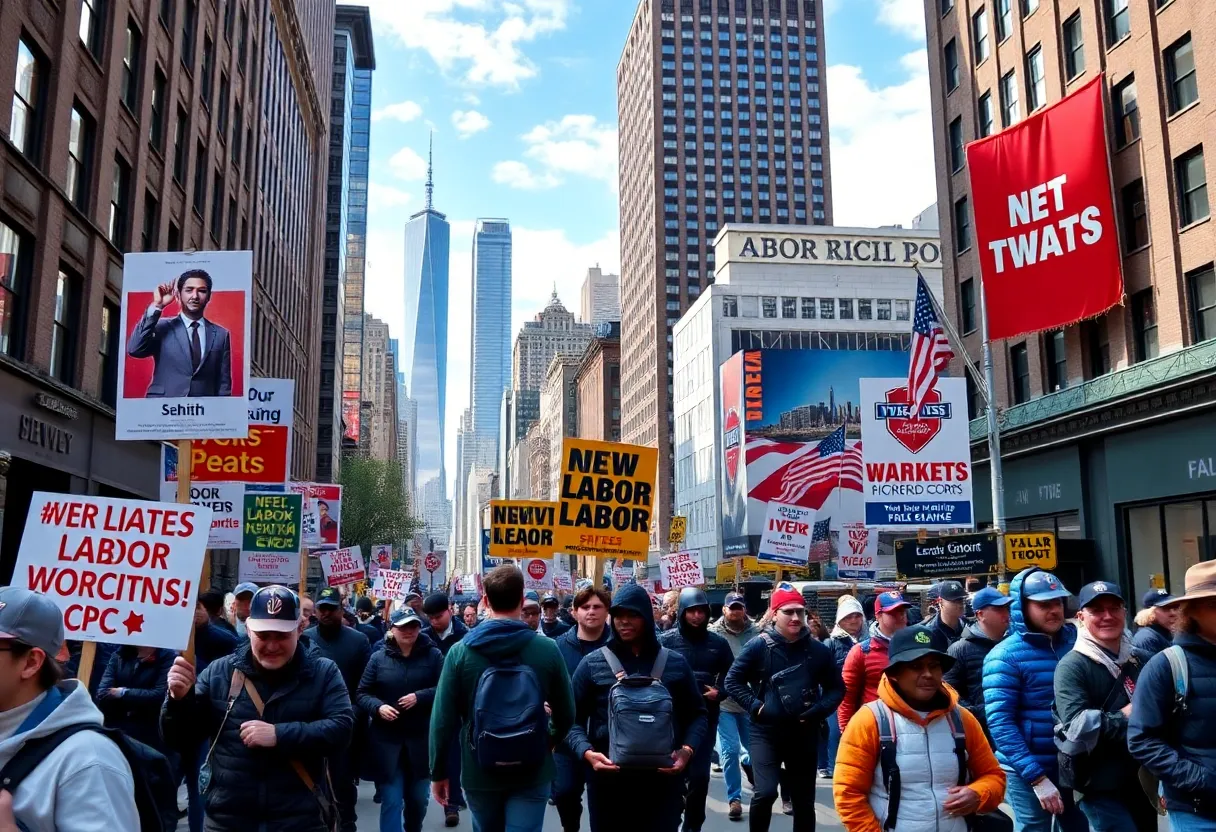News Summary
New York City has announced new minimum-pay regulations for rideshare drivers, including a 5% pay increase and provisions to prevent lockouts. The Taxi and Limousine Commission (TLC) aims to improve driver compensation and job security amidst recent company practices that jeopardized earnings. Rideshare companies must now give a 72-hour notice before any lockouts, and compensation policies will be regularly reevaluated. However, Lyft has raised concerns about potential negative impacts on earnings and consumer prices. The TLC’s actions could set important precedents for the ride-hailing industry.
New York City has officially announced new minimum-pay regulations for rideshare drivers, coming into effect following a board meeting on June 25. The revised rules will implement a 5% pay increase for drivers, a slight adjustment from the initially proposed 6.1% increase, aiming to enhance compensation while encouraging drivers to remain active on their platforms. These regulations were created by the Taxi and Limousine Commission (TLC) to thwart practices from companies like Uber and Lyft that in recent months have attempted to limit the earnings potential for drivers.
In May 2024, Uber began to randomly lock drivers out of its app during periods of inactivity in an effort to reduce operational costs. Lyft emulated this practice soon after. The TLC’s new regulations will now ensure that rideshare companies are required to provide drivers with a 72-hour notice before initiating any lockouts. Additionally, the changes will incentivize coverage of drivers’ time spent both transporting passengers and waiting for new ride requests, thereby addressing concerns about fair compensation.
The TLC faced considerable pressure to close regulatory loopholes that permitted these lockout practices which many argued compromised drivers’ income and job security. This revision in pay structure also means that pay rates will no longer be automatically adjusted every year based on utilization rates but will instead be reevaluated as necessary to keep pace with changing industry dynamics. This approach allows for input from various stakeholders, creating a more transparent system.
Despite the TLC’s actions, Lyft has raised concerns regarding the potential implications of the new pay formula. The company worries that the amended rules may still lead to decreased earning opportunities for drivers while simultaneously pushing ride prices upward for consumers. Conversely, an Uber spokesperson indicated that the rule changes aim to prevent future occurrences of driver lockouts and alleviate frustrations among drivers.
The New York Taxi Workers Alliance welcomed the new regulations, acknowledging that while they represent progress, there are still significant improvements needed for driver pay and job security moving forward. Investment reactions have already manifested in the stock market, with Lyft experiencing a drop in shares by as much as 3.3% in response to the news. Uber’s stock similarly reacted, initially rising but then seeing a significant pullback shortly after the regulations were finalized.
As the board prepares to vote, the considerations surrounding driver compensation, job security, and transparency in the ride-hailing industry are under increased public scrutiny. This situation reflects broader ongoing debates about fair wages and employment standards in the gig economy, influencing not only drivers but also passengers and the companies themselves. With upcoming discussions set, the outcome of the TLC’s decisions could shape the future of rideshare operations in New York City and possibly set a precedent for other regions seeking to regulate the industry.
The finalized regulations under the TLC’s governance mark a pivotal moment for rideshare drivers in New York City, illustrating how regulatory bodies can influence labor practices in the gig economy. As discussions evolve, the spotlight remains on understanding the balance between company profitability and fair compensation for drivers.
Deeper Dive: News & Info About This Topic








